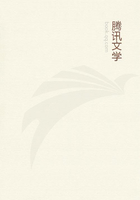Arts and manufactures, the great sources of increase to the productive powers of labor, do, it is granted, pass from country to country.It would appear then, that the gradual increase which the accumulation of capital produces on the productive powers of any society, is not alone sufficient to call forth all the resources which that society possesses; but, that it is often necessary to seek in other countries for the means, which give these resources full efficiency.In such cases, at least, therefore, the augmented wealth of the society cannot be said altogether to flow from the gradual increase of its capital by accumulation, the consequent division of labor, and the improvements thence resulting.Your theory is, therefore, so far most certainly defective, as it acknowledges the existence of a class of phenomena, the laws regulating which its principles by no means explain.
Instead, however, of attempting to answer the objections to your system, which this class of phenomena present, you pretend to say, that the practical rules directly, and in the simplest manner, deducible from them, are of necessity erroneous, because contrary to the principles of your system.
It being acknowledged by every one, even by yourself, that the improvements of the productive powers of labor thus effected by the continued spread of the arts of civilized life from country to country, are among the chief causes of the progress of national wealth and prosperity, they who have had the management of national affairs, have in different cases come to the unavoidable conclusion, that they did well in even sacrificing a small portion of the national revenue, provided this outlay served to introduce acknowledged improvement in the national industry, and source of national wealth.They have acted in this as an individual would do in the management of his private affairs, they have endeavored to introduce an improvement into the management of the funds with which they were intrusted, and have considered the price to be paid for such improvement warranted by the increased productive powers it would give to the same capital, and consequent increase to the national revenue, and national funds, which it would tend to produce.Like individual schemes their projects seem sometimes to have succeeded, and sometimes to have failed.But though, when he acts, it is incident to man's imperfect nature occasionally to err, to sit down therefore in resolute inactivity would be the worst error he could commit.
The celebrated author admits, that a manufacture may be introduced by the operations of the legislator, sooner than it could, otherwise be, and thus come to be made at home as cheap, or cheaper, than abroad.But then, he says, in spite of these apparent advantages of such a proceeding on his part, it must be wrong, because it is contrary to my system.And, before you can prove that it is justifiable, you must prove that the benefits resulting from it could not possibly have happened some other way."Though, for want of such regulations, the society should never acquire the proposed manufacture, it would not upon that account necessarily be the poorer in any one period of its duration.In every period of its duration, its whole capital and industry might still have been employed, though upon different objects, in the manner that was most advantageous at the time.In every period its revenue might have been the greatest which its capital could afford, and both capital and revenue might have been augmented with the greatest possible rapidity.
Now, I conceive, that instead of calling on his opponents to prove, that all the advantages arising from any such scheme might possibly come to pass without it, he himself has to show, that they must come to pass without it.And, that he has to do so, not by assuming his theoretical principles as true, for, if they are so, his axioms embrace and decide this and every case at once,but by an examination of the course of human affairs, and a regular deduction from them, of the certainty of these apparent advantages, or others equivalent to them, flowing in from some other channel than that of which he would bar the opening.













